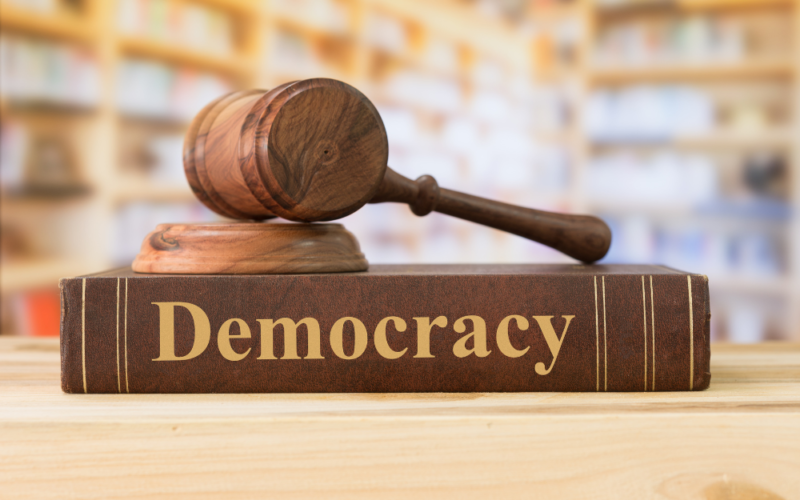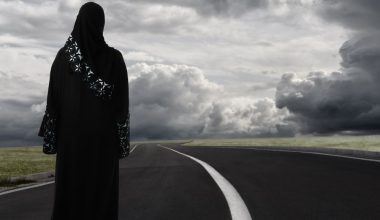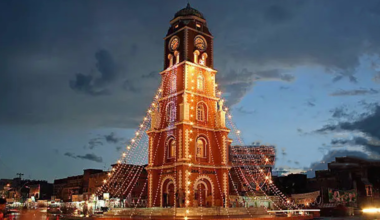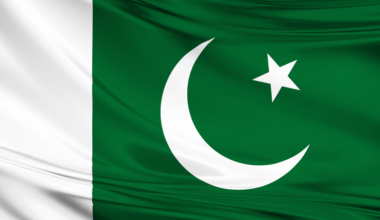If there is an overriding belief that marks Pakistani character, it is that it is a nation uniquely endowed with a mission. Pakistanis consider themselves to be a peculiar, chosen people amidst Muslim Ummah.
In a nation too recent to define itself by real or imagined historical achievements, they seek glory in the past of other Muslim nations regardless of any lack of plausible claim to such inheritance. Also, a nation that is too ethnically diverse to find cultural cohesion in a shared religion, a new narrative was built at the time of its birth to create the essence of a national identity – the conviction that bound people in the part that is now Pakistan together and defined their approach to the world. They are probably not the only one in the modern nation states who believe themselves favored by destiny, but they are the only one who believe that they are doing God’s work for Islam and Muslim Ummah.
Within this artificial national identity lie the seeds of a problem. It denies that national consciousness builds and changes only slowly as culture and tradition mutate and model the human psyche of their subjects. No country is beyond the laws of history. Unfortunately, the early leaders of the nation did not understand this process of history.
The foremost task of a society is to protect the self-interest of its constituents. When ideology is placed before the self-interest of people, it only breeds hypocrisy because people couch their self-centered motives in the name of the ideology in question – be it nationalism or religion.

Pakistan Army was indoctrinated in the same mode and generations of its generals have realized that they can easily win popular acquiescence if they present themselves as saviors of the nation, motivated by self-sacrifice and a noble desire to save the country. Generations of army’s top brass, notwithstanding some notable exceptions, have keenly embraced this belief because it reinforces their image as protectors of the republic. They think that Army’s involvement is essentially benevolent because the political and economic system it strives to enforce will make Pakistan stronger and its people richer and safer. A clear truth lies behind this belief in the transformative value of Army’s influence. It is that this has not worked yet. However, Army alone cannot be blamed for the failure of democracy in Pakistan.
The failure of democracy in Pakistan began in its early years because the democratic ideal of Jinnah and his comrades was subordinated to the security paradigm nourished by the fear of India. This is borne out by the astronomical proportion of expenditure on defense on civilian watch. For example, between 1948 and 1950, defense spending was as high as 71-73%.
Another factor undermining democracy has been the role of religion and religious organizations. Religious factor has been used for both consolidating and opposing power in Pakistan. As the role of civil society in channeling social protest has been very weak, Islamists have filled the vacuum to serve various social functions.
The most important factor, however, accountable for a stunted democracy is weak commitment to democratic norms among the politicians – prone to acting undemocratically in self-interest. The culture of what is now Pakistan has always been ridden with feudalism and clientelism in utter divorce from democratic ideology.

If the army has become so powerful, it is also because of the weakness of the political class. Politicians have often chosen to collaborate with the army than stand with their democratic adversaries. Not all army chiefs have been power-hungry. Also, civilians have not necessarily privileged democracy over their parochial interests. In fact, civilians have been mostly willing to serve the army dictators.
The weakness in the democratic culture can also be seen in the fact that a popular uprising on its own in Pakistan has never brought about the departure of a dictator. It has always been driven by external factors: the 1965 war in Ayub’s case, loss of East Pakistan for Yahya, plane crash eliminating Zia, and Washington’s deep suspicion of Pakistan’s double-crossing under Musharraf.
Jinnah favored the construction of a centralized state. Liaquat Ali Khan reined in political parties, whom he saw as disruptive to nation building. He even ignored his own party – Muslim League. After Jinnah and Liaquat, politicians from the West Pakistan -along with soldiers and bureaucrats- constantly undermined democracy for the fear of the superior numbers of Bengalis. Here are a few examples:
Ghulam Mohammad, a civilian governor general, invited commander-in-chief Ayub Khan to take over the country. The general turned down the offer. Then the prime minister Malik Firoz Khan made the general the defense minister in his cabinet.

Z A Bhutto rejected the mandate of Mujibur Rahman. When he came to power, Bhutto could stand up to the military, but he made the usual mistakes of the political class and turned out to be a democrat with autocratic tendencies, perpetuating the vice regal political culture that had subsisted in Pakistan. He had little respect for basic freedoms. However, his biggest mistake was to rig the elections in 1977 that -if held fairly- he could have easily won with a clear majority. The political unrest that resulted gave the Army an opportunity to perpetrate a coup d’état, presenting itself as the savior from the turmoil. Nawaz Sharif was the army’s creature to an extent more than any other politician in the history of the country. Imran Khan is no better in his commitment to democratic norms.
It simply means that democracy has simply been taken over by vendors using it to make profits or to fulfill their egos. There is not a single political party of any significance in the country which is managed democratically with free internal elections and equality of probability to all its members. So, none of the so-called democrats actually practice or allow democracy within their own parties.
Secondly, every democratic leader in the country’s history has focused on concentrating power in their hands instead of devolution. Hence, there are no democratic institutions at the levels of cities or neighborhoods. The real democratic systems start from municipality levels and work their way up. Being somewhat tribal is not a bad thing as long as we work in a fractal manner to create organized harmonious relations among tribes.
Democracy consists in scale transformation from individual to collective, from particular to general. Blaming the people for being sectarian does not work. The challenge lies in making the best of natural tendency of life to be sectarian. Artificially merging all tribes in one large group does not work. It has not worked in seventy-two years and will not work in future. As we have continued to witness in the past few decades, large centralized multiethnic states eventually come apart.
Politicians’ failure to build powerful and independent civilian institutions has meant its armed forces are the only truly effective and world class institution in the country. It is a normal phenomenon that when an institution becomes disproportionately powerful it inevitably becomes gluttonous and prone to the temptation to take what it wants. When no power restrains it, it does not restrain itself. This is an established rule of history.
It is this combination of factors that gives Pakistan Army a messianic desire to combat evil forces in the country, a conviction that applying power will enable to shape the country in the image they desire, and a certainty that doing so is good for the country. In fact, it is very easy for generals to become delusional, simply because they never have to pay for the consequences of their actions. They can cause harm without being accountable for it, by the very structure of their occupation.
However, the army needs to learn that its power is not enough to force the course of history. It’s a long-drawn process. There are and probably will be political governments who are inept and corrupt. But every time the army has intervened to contain the damage done by such politicians, it has led both the country and army to grief. When the army assumes the right to decide which politicians pose threats, and then acts, it destabilizes the process rather than stabilizing it.
Such intervention cannot be a substitute to the long and challenging process of building a nation founded in strong institutions. It requires a lot of patience and restraint. Intervening in political process may yield quick satisfaction but creates problems bigger than the ones it sought to resolve. If it were possible to control the evolution of a nation through intervention by its armed forces, the states where armies have continued to shape political process would be the most successful ones among comparable nations. We all know, beyond doubt, that is not the case. History is not going to make an exception for Pakistan.

If there is one thing that anybody in power in Pakistan can do for the country, it is to insist and ensure devolution of democratic institutions to the local levels. In any decent country at least 60% of government spending has to be locally controlled. In the absence of that engagement at the grassroots level democracy, in a country where hardly 50% people vote at the national level, will mean nothing more than what it has so far represented. That is, tyranny of stubborn and assertive minorities in national politics as well as within the parties, where an intransigent minority can bend the entire population or party to their preferences, and everybody has to submit to outcomes stemming from fanatism of a minority. This asymmetric reign where only a few people suffice to disproportionately move the needle is not good for democracy. Asymmetry is present almost everywhere but to counter its tyranny the democracy has to go deep and go local. Democracy is a bottom-up exercise whose essence lies in the political volatility that takes place at town and municipality levels, in the bickering and abrasions of running the regular everyday affairs. As the scale increases the quality of relationships between the parties also alters as conversations change from mundane and concrete to distant and abstract. More interesting perhaps, but less effective. The way people handle local affairs is highly different from the way they handle large, abstract policies and public expenditures – papers, numbers, statistics, spreadsheets, graphs, analyses, and theories. Biology has an important say here. We have evolved to live in small units and generally manage well in small units. Politically it helps in not only effectively resolving problems but also managing noise, by offering a mechanism for letting gripes run their course and not by stifling them. A cluster of such well managed units, with charming enmities and internal fights, aggregates into an effective modern-day nation state. Therein lies the path Pakistan must take to become a thriving democracy one day.







